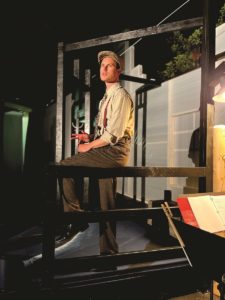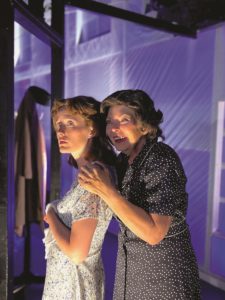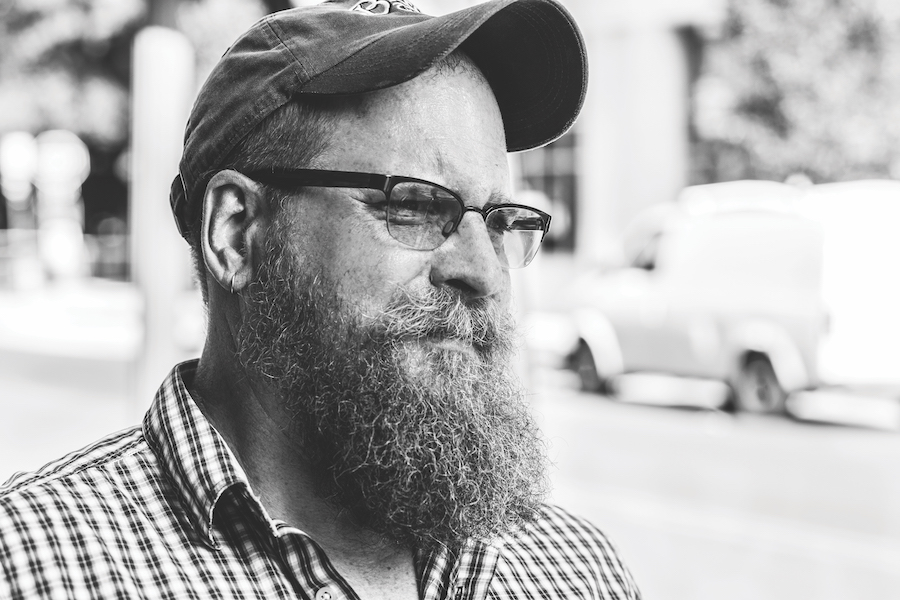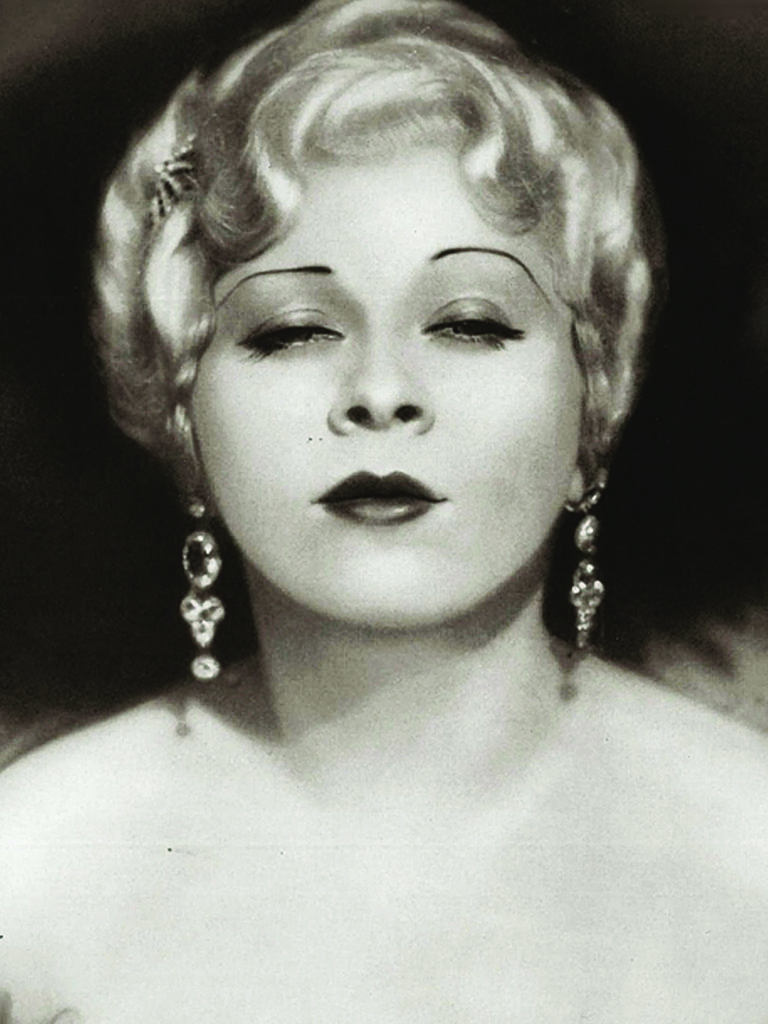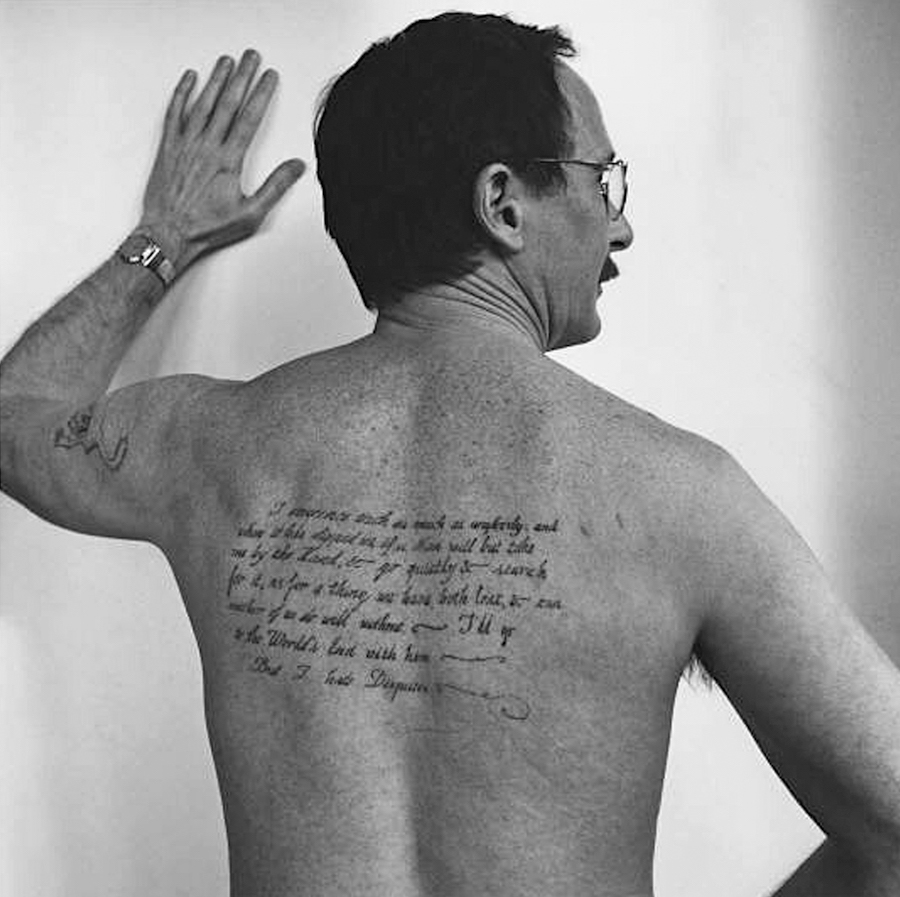David Drake, artistic director of the Provincetown Theater, has spent the winter preparing for the 2024 season, with shows from May to November. The biggest challenge? How to please everyone.

“How do I bring the lesbians, the gay men, and the straight people together?” Drake asks. “That’s the bane of my existence.” He lets out a characteristic warm cackle and adds, “And it’s also, as I say, my opportunity.”
After many years during which the theater seemed to be in flux, with various companies using the space at 238 Bradford St., Drake was hired in 2017 to give the Provincetown Theater direction and stability. He came from a decades-long career in New York, including having written the Obie-winning one-man show about the AIDS crisis, The Night Larry Kramer Kissed Me, loosely based on his own biography.
“We’re not a gay theater company,” he says. “But we have a big gay audience. And we’re the only theater on the Cape that really can program for those people. But I also need to get in our subscribers from Eastham, Wellfleet, and Orleans.”
Drake says he tries to reach a diverse audience through the lens of a specific story. “How do we share our common objective, which is to get to harmony, get to joy, get to freedom, get to peace?” he asks.
He thinks about the arc of the theater’s seven-month season, selecting each play for the time of year. Who will be in town? What are they looking for?
It’s important, he says, to begin the season with a bang. “I always think of the spring show as the big gathering,” says Drake. “It’s a chance to bring the whole community back into the space. This is your playhouse. This is your town. These are your stories. I am not here to give you a story about something that’s good for the tourists. I am your local theater guy making you feel connected to each other.”
Indeed, this season starts with a bang. Drake will direct Tony Kushner’s Pulitzer Prize-winning opus Angels in America, widely considered not only to be one of the best gay plays but one of the best American plays ever written. Set in the first years of the AIDS epidemic, the tragicomedy focuses on two couples — one gay, the other straight and Mormon — whose stories become interwoven.
Drake began casting the production in January. “I added some more actors to play some of the smaller parts, so it’s more of a community effort,” he says. “There are 10 actors in our production, whereas it’s written for seven. It’s the first role for one of the actors. He’s already off book.”
That actor is Sean Flyr, who works at the Community Development Partnership in Orleans.
“Angels is my favorite play,” he says. “I was concerned that being in that room with so many experienced powerhouse actors would be daunting, but instead it has given me the motivation to work harder and try to live up to the standards they set.”
Todd Flaherty, a filmmaker and regular performer at the theater, will be playing the leading role of Prior, the last member of an American family with colonial roots who experiences visitations from angels as his health declines from AIDS.
“David is my favorite kind of director,” Flaherty says. “He approaches directing with a keen sense of the emotional journey he wants his audience to take.”
Angels in America comes from a time of deep pain that many in the Provincetown Theater audience lived through. “They’re sitting on the side of survival.” Drake says. “Many in the audience are on lifesaving drugs, and many are on PrEP.”
One of the characters in the play is Roy Cohn, the real-life closeted lawyer who, before he died of AIDS, served as Sen. Joseph McCarthy’s chief counsel during the 1950s Red Scare. Cohn was also a key mentor to Donald Trump during his early business career.
“Angels has a lot of politics to chew on,” Drake says. “There’s lot about Reaganism. It’s about a time similar to the one we’re in now. We’re in a terrible political bind right now.”
Drake credits Rebecca Berger with giving him the courage to pursue such weighty material. Berger came to the theater in 2019 as an intern and returned the following season as stage manager. Since then, she has risen to director, taking on What the Constitution Means to Me and Tiny Beautiful Things.
“I said to her, ‘Should we do Angels in America?’ ” Drake recalls. “ ‘I’m kind of on the fence about it. Is it too heavy?’ And she said, ‘I don’t ever think of it like that. Whether it’s heavier or lighter doesn’t make it good. Is it a good story?’ So, it was kind of her permission. She didn’t think she was giving me permission, but I needed the advice of an outside younger person to say, ‘I think you should do it now.’ I thought, well, there’s your answer, David Drake.”
